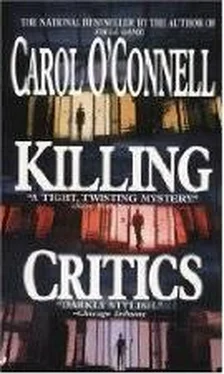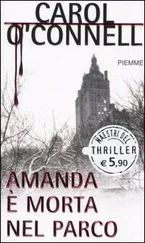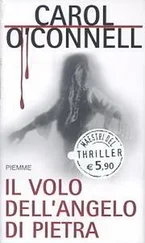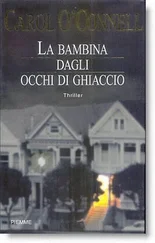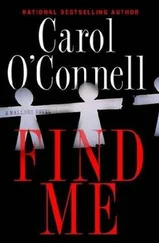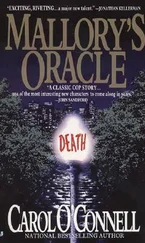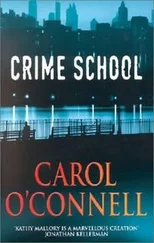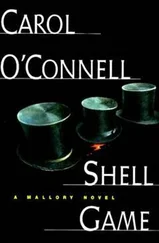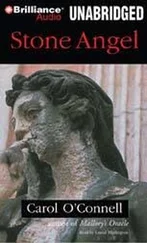Carol O’Connell - Killing Critics
Здесь есть возможность читать онлайн «Carol O’Connell - Killing Critics» весь текст электронной книги совершенно бесплатно (целиком полную версию без сокращений). В некоторых случаях можно слушать аудио, скачать через торрент в формате fb2 и присутствует краткое содержание. Жанр: Триллер, на английском языке. Описание произведения, (предисловие) а так же отзывы посетителей доступны на портале библиотеки ЛибКат.
- Название:Killing Critics
- Автор:
- Жанр:
- Год:неизвестен
- ISBN:нет данных
- Рейтинг книги:3 / 5. Голосов: 1
-
Избранное:Добавить в избранное
- Отзывы:
-
Ваша оценка:
- 60
- 1
- 2
- 3
- 4
- 5
Killing Critics: краткое содержание, описание и аннотация
Предлагаем к чтению аннотацию, описание, краткое содержание или предисловие (зависит от того, что написал сам автор книги «Killing Critics»). Если вы не нашли необходимую информацию о книге — напишите в комментариях, мы постараемся отыскать её.
Killing Critics — читать онлайн бесплатно полную книгу (весь текст) целиком
Ниже представлен текст книги, разбитый по страницам. Система сохранения места последней прочитанной страницы, позволяет с удобством читать онлайн бесплатно книгу «Killing Critics», без необходимости каждый раз заново искать на чём Вы остановились. Поставьте закладку, и сможете в любой момент перейти на страницу, на которой закончили чтение.
Интервал:
Закладка:
“I like your work,” Mallory said. “I was wondering what kind of sculpture was planned for the plaza. I understand the chairwoman of the Public Works Committee is an old enemy of yours. Does that worry you?”
Gilette laughed. “Emma Sue Hollaran? She’s not big enough to be an enemy. She’s a barnyard animal. A small one.”
She could hear the trace of a foreign accent, not the French of his father’s people, but a lingering influence of his Hungarian mother. According to Mallory’s background check, he had immigrated with his mother at the age of seventeen. In his spectacular rise from poverty and obscurity, he was the American dream machine at its best. And his daughter had been the American nightmare. Aubry had won the national lottery of the victim with the most extensive media fame.
“This new building is your first American commission in years, isn’t it?”
“So you do know my work. Yes, this building is my swan song. It’s the last commission I will ever take. I want to end my career at the height of my powers.”
“I suppose you spent all this time in Europe because New York had too many reminders of your daughter.”
“No, that’s not it. I carry reminders of Aubry everywhere I go. I must have a hundred portraits of her. No, my problem was just the opposite. Here in New York, no one ever spoke of her anymore. Friends and relatives were all afraid to mention her name, afraid to cause me fresh pain. In every day which excluded any mention of my child, I felt she was being erased.”
Charles was surprised to see Mallory leaving with Gregor Gilette. As she was passing through the doors, he saw her turn to search the sea of faces, and finding his, she waved. There was the lift of one white shoulder to say, It can’t be helped .
The tilt of his head to one side asked, Why not ? But the doors were already closing behind her. The tight line of his mouth wobbled in a foolish, self-conscious smile.
The music began again and the dancers whirled around the floor, making a circle of hushing fabrics, a rushing blend of perfumes, a mosaic of brilliant color and motion all around the solitary man with the sad face, who was staring down at his shoes.
Just as Andrew Bliss had assembled his canopy of raincoats on a loose net of ropes, the rain had stopped. Well, that was life. Now a wet breeze licked the edges of his designer raincover. Traffic noises were sporadic. The night was cool and ten-thirty dark. A heavy truck was making wet static in the street below, and now a car. A siren, far off, was fading down some other street. And on the street below, two boom box radios dueled rap music to heavy metal.
Exhausted, Andrew fell on his bed of quilts and relapsed into fitful sleep, mangling satin sheets into a damp and winding rope. His dream blew apart in pyrotechnics of brilliant red flashes. His hands clutched the air, reaching for the blasted color fragments.
He mimed a scream as his body jerked with spasms and slowly folded in on itself to resemble a twitching fetus with hands pressed to its gut. The dream slid away from him, the pain subsided and his body unfolded in a free fall, floating down into deepest sleep.
“No, I never dream,” he would say, when conversations turned to that subject. And he believed that this was so. He never did remember his dreams, though this one had been much the same every night.
His face was composed now, the flesh smoothed back. He was forty-eight years old, and there should have been at least a character line, a laugh line about the eyes or mouth, but there was nothing there. No ancient scar to prove any rite of passage. But for the size of his body, he might have been a child.
He was child-size in his dream, and the world inside his head was bright as day and hot, a touch of hell in the afternoon. He rode silently, covertly inside a bag lady’s trolling cart, resting on a buttonless blue coat, the find of two trash cans past. A salty drop sweated down his shaded face. He made no sound, lest she find him there and drive him out. No free rides in New York City. In the rolling wire nest of junk, he found a Chinese fan, cracked lacquer and one hole, but useful still and soothing. Now his hand found the axe, wet and red. He screamed, but only the smallest squeak could be heard, no louder than the creaking cart wheels.
The old woman stopped the cart. “Get out! Get out!” the woman screamed, baring toothless red gums. “No free rides in New York City.”
He stepped out onto the sidewalk, watching her move on, laboriously rolling down the steamy street with her wire cart.
A group of adults loomed over him, angry and pointing to the body of a young woman lying at his feet. Her face was a mask of blood, and yet she would not die. He turned his back on her, and listened to the sounds of her struggles. What kept her alive? He turned back to look. A blade was cutting into her neck, aborting the scream in her throat. Next, it cut through her outstretched hand, shredding it. He covered his face and turned away. By the sounds, he understood what was happening behind his back. He could hear the sounds of gurgling blood in her throat and the soft suction noises of the blade working in and out of the flesh. The blood ran over his shoes in a trickle, and the trickle widened to a steady stream of rich red, and her banging heart beat out more blood to feed the river.
He woke up screaming. The rain had begun again.
The plaza was covered by scaffolding and wooden boards. He handed her the umbrella and gestured for her to step back as he pried open one of the boards and removed it. Mallory and Gilette stepped through the wooden fencing and entered the dark plaza. He led her across the paving stones, explaining the placement of each object and what he had done to foil Emma Sue Hollaran’s plans for this space.
“She really hated your wife, didn’t she?”
“Yes. But someone had to stop Emma Sue. Sabra thought the woman was crazy, and she didn’t want her near Aubry.”
“Dangerously crazy?”
“Perhaps. Emma Sue was stalking me. She telephoned and sent me letters every day. We were constantly changing the phone number, she was always getting the new one. She could simply not believe that I wanted nothing to do with her. Sabra took her letters and gave them to a tabloid reporter. Instead of printing them, the reporter sold them back to Emma Sue. The harassment stopped, but then she went after Sabra in her column. When that didn’t do any damage, she finally just ceased to be a problem.”
“Until now.”
“Yes, but I think I’ve minimized the damage she can do.”
Mallory approved the layout of the plaza. The fountain was the centerpiece, a work of art in itself, and there were generous paths between it and the groupings of benches, but her eye for perfect symmetry could find no place to put another object.
“You haven’t left her any room for a large sculpture.”
“Exactly. Whatever they put here, it will have to be something rather small.”
The plaza itself was a perfect work of art, and nowhere in the scheme would it accommodate another structure. A strand of young trees lined the space and would not permit anything but birds among them. Benches had been built up from the plaza floor and could not be moved aside. Anything placed near the fountain would block the carefully planned walkways.
She entwined her arm with Gilette’s and led him to a bench by the fountain. Water music and sporadic sounds of traffic mingled with the rustle of the trees in a warm wind.
“I want to talk about the night Aubry died.”
“You’re wondering if I can do that? I prefer to talk about the time when she was alive-but yes, I can manage it.”
“Let me give you a scenario for Aubry’s death. You tell me if this works for you. Suppose she wasn’t the target that night. She might have come on the murderer in the act.”
Читать дальшеИнтервал:
Закладка:
Похожие книги на «Killing Critics»
Представляем Вашему вниманию похожие книги на «Killing Critics» списком для выбора. Мы отобрали схожую по названию и смыслу литературу в надежде предоставить читателям больше вариантов отыскать новые, интересные, ещё непрочитанные произведения.
Обсуждение, отзывы о книге «Killing Critics» и просто собственные мнения читателей. Оставьте ваши комментарии, напишите, что Вы думаете о произведении, его смысле или главных героях. Укажите что конкретно понравилось, а что нет, и почему Вы так считаете.
